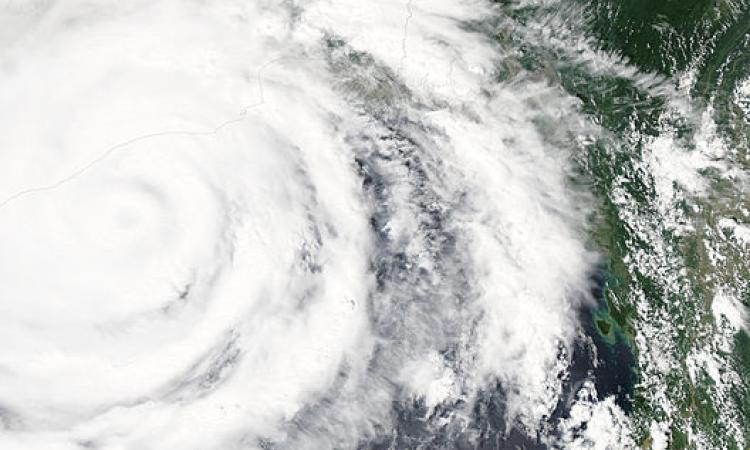
Cyclone Phailin finally wanes
It left 14 people dead but an efficient early warning system and mass evacuation in the states of Odisha, Andhra Pradesh and West Bengal helped save more than a million lives from one of the biggest cyclones that hit the country in the last 14 years. Over 12 million people could have been affected by the cyclone for which warnings came in five days prior. The cyclone, however, caused huge infrastructural destruction, affecting 90 lakh homes and paddy crop worth Rs. 2400 crore. The last cyclone in Odisha in 1999 killed 10,000 people.
Maharashtra Pollution Control Board lax in acting against polluting power plant
The 420 mega watt Chandrapur Super Thermal Power station in Maharashtra has been spewing toxic fumes for more than 10 years now but the Pollution Control Board failed to act, a Right to Information application revealed. The Board has just extracted bank guarantees from the power plant but not got them to update their pollution control measures. Chandrapur is one of the most polluted cities in India. In 2005-06, a Maharashtra government report revealed that 50% of Chandrapur residents are suffering from respiratory and stomach-related ailments.
Central Railways saves power worth Rs 5 crore in three months
The Central Railways brought down power consumption by 68 lakh units in three months after it launched its power saving drive in May this year. This drive has saved it Rs 5 crore in electricity bills. The Railways adopted efficent use of power in their 170 freight trains that consume the maximum power. The Central Railways has projected a saving of about Rs 20 crore annually by using its power efficiently.
Kolkata district authorities dig out fly ash to save wetland
The district authorities have employed excavators to dig out fly ash dumped by real estate developers in the 500- acre Mullarbaer wetland of the district. Bird watchers and environment activists were protesting against fly ash dumping in the wetland that had been going on for an year now. The municipal authorities had served notice to the eight private firms that had filled up the wetland. The authroties undertook the excavation themselves since there was no response from them and have said that the cost will be billed to the firms.
Kochi ground water unfit for human consumption
The level of E-coli (faecal bacteria) has gone up drastically in the district's ground water level rendering it unfit for human consumption, a survey revealed. Out of the samples taken from 15 wells, only one was found to be satisfactory. The E-Coli count in some wells was found to be above 2000 which renders it equal to waste water. Faulty construction of septic tanks and deep pits that replace septic tanks have been found to be the reason for E-coli contamination.
This is a weekly roundup of important news from October 7-13. Also read last week's policy matters updates.
/articles/cyclone-phailin-finally-wanes